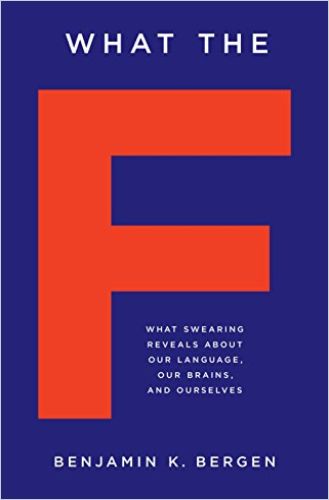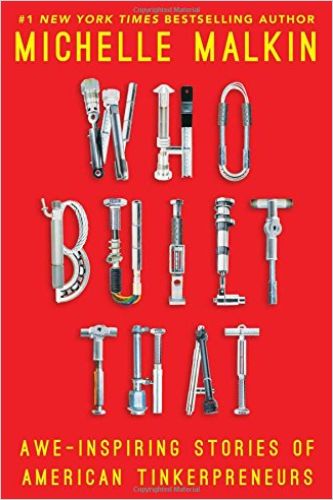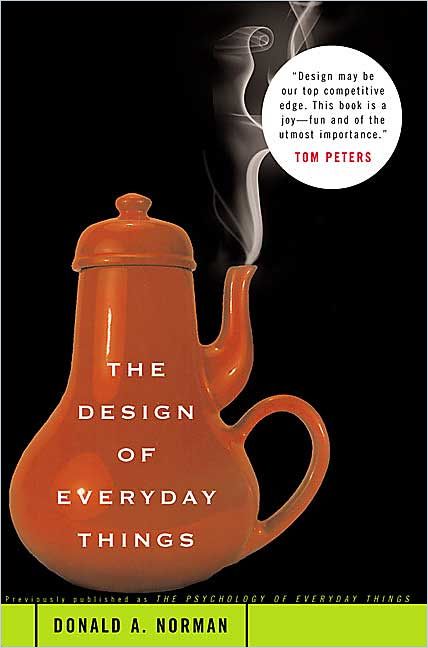Language Barriers

The development of language is probably the most outstanding achievement of the human race. The ability to speak provides us with the possibility to describe something that has not yet happened. Or, to talk about an event that lies in the past. Speaking enables us to think. I know this is hard to believe when accidentally zapping into a random talk show on politics.
It is a fact, however, that without language we would never have built complex societies. Our entire modern culture is based on our ability to communicate. Primates turn to grooming in order to stay close to each other; we humans talk. Language allows us to form networks, coordinate actions and build relationships. With the skilled use of words, we can ignite desire, soothe fear or make others laugh. Words can cause revolutions and reconcile once hostile peoples: “I have a dream,” “We are the people,” “Ick bin ein Berliner,” or “Senk you for travelling viz Deutsche Bahn.”
Note
Our columnist Vince Ebert speaks at congresses, conferences and company celebrations in German and English on the topics of success, innovation and digitization. Here you can hire Vince Ebert as a keynote speaker for your event.
I spent last year in New York City. One of many reasons was to properly learn the language. A few years back I was literally petrified when I had to speak English – as opposed to my wife Valerie who is almost on a native speaker level. Every time someone from Canada, America or any other English-speaking country was at a party I turned to stone and would helplessly throw things into the conversation like “Really?” “Huh!” or “But of course!”. I constantly panicked that someone would ask me a question that required more of an answer than a simple yes or no.
“So, Vince, tell me a little about yourself!”
….. ??? …
“Uhm…. No.”
If one hasn’t learned a language from birth, it’s almost impossible to avoid some minor mistakes. I once asked a waiter at a New York restaurant “Where’s the toilet?” He grinned and answered slyly: “Last time I checked it was in the bathroom.” When I came back from the bathroom he asked me what I do for a living. I said just as slyly: “I work!”
Getting Used to It
After some time living in the USA, it got easier and easier to chat with people. At least for the first 10 minutes into the conversation. When my brain was still fresh. After a while, though, I had an increasingly hard time to come up with the right terms and phrases and grew more and more silent. Our friends kept telling my wife what a great listener I was. Her answer: “He really isn’t. He just had no clue what the hell you guys were talking about.”
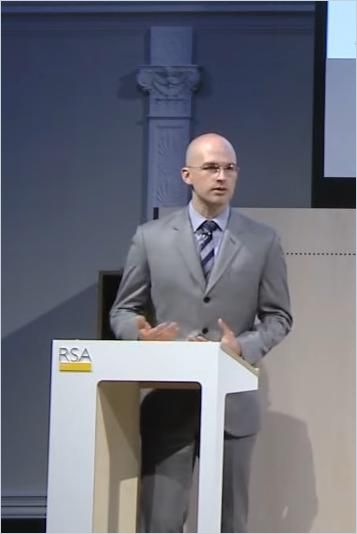
With passing time, I slowly figured out how things worked. I was aware of most things around me, could understand nearly everything and was even able to react spontaneously. And then we travelled to Texas.
Phonetically Texans are the Bavarians of the United States. You can only understand anything they are saying when having lived in Dallas for the last seven generations.
Vince Ebert
Even worse are the Scots. A New Yorker with an Edinburgh background once told me the story of his ancestors coming to America. For a whole 20 minutes. In the end, it turned out that he had talked about the Yankees’ last game. Linguists believe that the harsh Scottish accent evolved because the drink-enthusiastic Scotsmen were trying to avoid throwing up.
Languages transport not only words but also moods and emotions. It’s not just what you say but also how you say it, that matters. Korean, for example, sounds incredibly aggressive to non-Koreans. When a Korean enters a shop by saying “Good Day” it sounds like he intends to rob the place. The Vietnamese language on the other hand sounds a lot softer, a little like Korean on dope. French has a romantic melody to it, Russian sounds like playing an LP record backward.
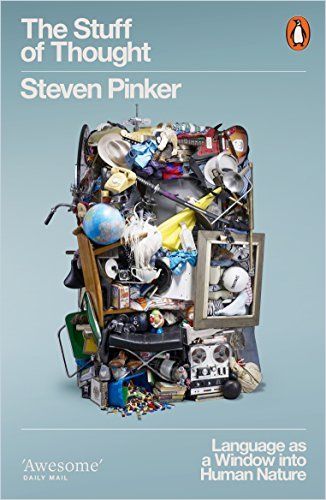
What I still don’t quite get after all this time in the United States are prepositions. You don’t fly to New York, you fly into New York. Which rings wrong especially after 9/11… And you don’t ride in but on the subway even though I have never seen anyone on the roof.
But, I have to admit, when it comes to unnecessarily complicated and illogical grammar, we Germans are the market leaders.
Vince Ebert
The word “Mädchen” (girl) has no gender but “Rübe” (beet) is feminine. Try to explain to an American that German knows 32 different endings for adjectives and 16 ways to say “the” and he will go nuts. Or more likely think that you are nuts. “How can we integrate refugees better into our culture?” I have an idea: Let’s get rid of Dativ and Genitiv!
How We Learn Languages – and How We Don’t
What’s really astonishing is that when confronted with a language from birth, we are not aware of irregularities and illogical rules. We are born into this world speechless. After the first 18 months, our vocabulary consists of 50 words and we can understand 100. By the age of three we have stocked up to 1,000 words; at six years old we are able to manage over 6,000 different words and terms. This means that by this time we have learned three new words every day, as well as the accompanying grammar. Without much effort. Ask a five-year-old if he or she knows that something can look/taste/smell/sound good but not well, because all sensory verbs allow only adjectives, not adverbs. The child will probably have no idea what you mean – because kids apply that rule correctly on mere intuition.
As we all know, learning a language as an adult is much harder especially if one, like me, is not particularly gifted. I thought for years that Lugano, Luzern and Lausanne are names for one and the same place, but in Italian, German and French.
Vince Ebert
On this note I would like to end with a little joke: A Swiss tourist gets lost in New York and asks two Americans for directions to his hotel. He first talks to them in French. Then Italian. Then he switches to German and eventually tries Rhaeto-Romanic. Nothing doing. The Americans don’t understand a single word. The Swiss finally gives up and walks away defeated. One of the guys says: “Maybe it wouldn’t be such a bad thing to learn a second language.” “What for?” says the other one. “This guy knew four and what good did it do him?”
For further reading on the topic, Vince recommends the following from our knowledge library:

These Are the Skills You Should Learn That Will Pay Off Forever
World Economic Forum Read Summary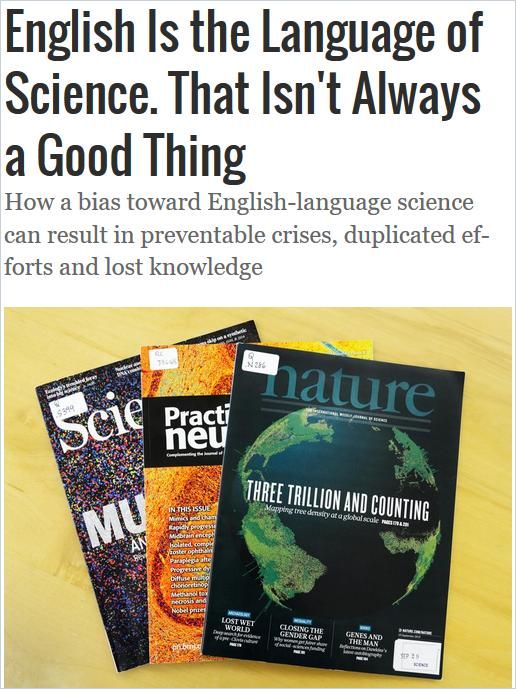
English Is the Language of Science. That Isn’t Always a Good Thing
Smithsonian Magazine Read SummaryPhoto: Frank Eidel
